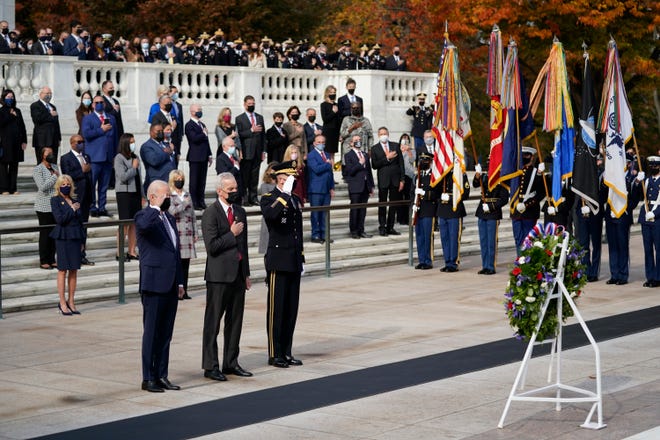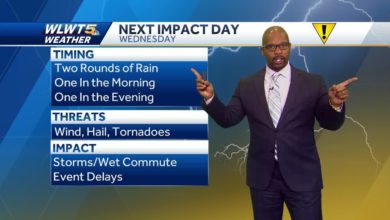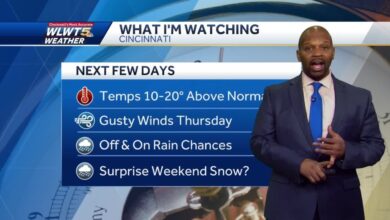Former U.S. Senate Majority Leader Harry Reid, the political pugilist who rose from a one-room Southern Nevada shack to become among the most powerful people in American politics, died Tuesday. He was 82.
Reid was diagnosed with pancreatic cancer in early 2018.
Reid was a revered and reviled force in Democratic politics for more than four decades, gaining a reputation for soft-spoken ruthlessness as he clawed his way from Nevada’s lieutenant governor’s office to the very pinnacle of the U.S. Senate.
The stooped, bespectacled Senate strategist was, by his own admission, “kind of a strange guy.” Reid was a pro-gun, pro-life Democrat and a devout Mormon who opposed prostitution but, later in life, endorsed same-sex marriage.
For years, he cultivated an interest in mysterious space phenomena, and even funded a shadowy Defense Department program to study unidentified flying objects. More than a decade before the Pentagon released a long-secret report on UFOs, Reid was a passionate advocate for declassifying government intelligence on the issue.
Reid also reliably defended his right to siphon federal funding from someone else’s backyard for “pork barrel” projects in Nevada. Meanwhile, he did everything short of lying down on Las Vegas-area train tracks to stop others from shipping nuclear waste to his own backyard at Yucca Mountain.
Yucca only added to the former amateur boxer’s reputation for starting, and finishing, all kinds of fights.
Reid, for example, won a fistfight with his future father-in-law before marrying his wife, Landra. The couple went on to have five children together.
He also faced down organized crime while serving as chairman of the Nevada Gaming Commission in the late 1970s, once attempting to choke out a mobbed-up Las Vegas businessman who tried to bribe him. Similarly tense clashes with Mafia associates famously earned him a fictional portrayal in Martin Scorsese’s “Casino,” not to mention an unexploded car bomb found under the Reid family station wagon in 1981.
Yet Reid’s scrappy approach translated well on Capitol Hill, where he rarely repented after petrifying an opponent or polarizing a party ally. Senate colleagues occasionally called Reid a tyrant and a dictator. He didn’t care. In fact, Reid had planned to serve a sixth term in the Senate before suffering severe eye injuries in a freak exercise accident that contributed to his decision to retire in 2016.
As Senate majority leader, Reid often acted as President Barack Obama’s enforcer.
Take the 2010 fight to pass the Affordable Care Act, Obama’s signature legislative achievement. Reid clamored to recover rapidly scattering votes for the legislation, then used his mastery of arcane Senate procedure to quickly slingshot the bill to a vote. He did much of this work behind closed doors, over loud objections from Republicans who accused him of ramming Obamacare through without sufficient sunlight. The bill passed. Reid didn’t apologize.

Or consider the 2012 presidential election, when Reid came under fire for falsely accusing Republican presidential nominee Mitt Romney of failing to pay taxes for a decade. Romney lost. Reid didn’t apologize.
“Romney didn’t win, did he?” Reid once asked in an interview with CNN.
In 2013, Reid attracted a fresh round of bipartisan criticism for scrapping the Senate filibuster for judicial appointments. The move cleared a path to confirm more than 100 Obama-era judges, but also lowered the bar for approving much more conservative jurists later picked by President Donald Trump.
Reid didn’t shy away from that decision either, later telling the New York Times that if Obama’s presidency was to be a success, he had “no choice” but to clear the backlog of judicial nominees.
Reid’s uncompromising style served him well at home, too. The five-term senator was not above sweeping potential challengers out of his way via shrewd backroom maneuvers, most notably when he helped appoint rising Republican star and potential Senate challenger Brian Sandoval to a federal judgeship in 2005.
Nor was he skittish about anointing his successors. Just ask U.S. Sens. Catherine Cortez Masto and Jacky Rosen, both of whom were reportedly handpicked by Reid in the twilight of his storied Senate career.
Longtime Reid chronicler Jon Ralston regularly referred to Reid as “Prince Harry.”
History may better remember him as a kingmaker.
Senate Majority Leader Chuck Schumer, D-N.Y., memorialized Reid as “one of the most amazing individuals I have ever met” and called him “my leader, my mentor, one of my dearest friends.”
“He was tough-as-nails strong, but caring and compassionate, and always went out of his way quietly to help people who needed help,” Schumer said in a statement. “He was a boxer who came from humble origins, but he never forgot where he came from and used those boxing instincts to fearlessly fight those who were hurting the poor and the middle class.”
“He’s gone but he will walk by the sides of many of us in the Senate every single day,” Schumer concluded.
Nevada Gov. Steve Sisolak said Reid “never forgot who he was or where he came from” and “spent his life and his career fighting the good fight for all Nevadans.”

Humble Nevada beginnings
Reid was born into poverty in Searchlight, the once-bustling gold boomtown 45 miles south of Henderson. Until high school, he lived in a small shack with no hot water, no toilet and no telephone. He was the third of four sons born to Harry Reid Sr., a miner, and his wife Inez, who did laundry for the local bordellos. Reid described both of his parents as heavy drinkers. His father committed suicide when Reid was 32.
Reid stayed with relatives while attending Basic High School in Henderson. There he met close friend and future Gov. Mike O’Callaghan, who was then a teacher and Reid’s boxing coach.

Reid also met his wife while in Henderson. Landra Gould’s parents were Jewish, and wanted her to marry a Jewish boy. She told the New Yorker that her father would “would tear up Harry’s letters, hang up the phone on him.” Tension over the courtship eventually culminated in a front yard fight that saw Reid push his future father-in-law to the ground.
The clash did not prevent Harry and Landra Reid from marrying in 1959. Days after breaking the news to her parents, Landra Reid said she got a letter saying that they had finally accepted her husband. She eventually followed him to Mormonism shortly after Reid himself converted in 1960.
Boxing skills picked up from O’Callaghan helped Reid land a partial scholarship to Southern Utah State College. He graduated from Utah State University in 1961. From there, Reid was on to George Washington University, where he worked his way through law school as a U.S. Capitol Police officer.
Reid's early rise
Reid returned to Nevada and served as Henderson’s city attorney before winning a single term in the state Assembly.
In 1970, O’Callaghan picked the 30-year-old Reid as running mate in his successful race for governor. Reid served as lieutenant governor until 1974, then launched a bid for the U.S. Senate seat, won narrowly by former governor Paul Laxalt. Reid suffered another campaign defeat one year later, losing the race for Las Vegas mayor in 1975.
Two years later, O’Callaghan resurrected Reid’s political career with what he thought would be a cushy appointment as chairman of the Nevada Gaming Commission. But organized crime, then a very real presence in Nevada casinos, made the job a lot more lively.
During his first year on the job, Reid allowed the FBI to videotape a meeting in his office with Jack Gordon, a known Mafia associate who ran arcades at the Las Vegas Circus Circus in the 1970s.
Gordon offered Reid a $12,000 bribe to approve two new gaming devices, an offer that so infuriated Reid that he attempted to choke Gordon before FBI agents burst into the room to break up the confrontation.

"You son of a bitch, you tried to bribe me!" Reid reportedly said to Gordon during the videotaped encounter.
Gordon was convicted in federal court in 1979 and sentenced to six months in prison.
Reid had earlier butted heads with infamous mob bookie Lefty Rosenthal, who was denied a gaming license for the Stardust after bickering with Reid during a 1978 commission hearing. The exchange was canonized in “Casino,” the 1995 film starring Robert DeNiro as Rosenthal.
In 1981, Landra found a loose cable under the hood of the Reid family station wagon and “something” sticking out of the gas tank. Police found a device that would have exploded had it been correctly grounded, according to a 2005 report from the New Yorker.
Reid blamed Gordon for the botched bombing, and left the Gaming Commission when his appointment expired in 1981.
Congressional controversies
Within two years, Reid won his first seat in Congress, representing Nevada’s 1st Congressional District for two terms, ending in 1987.
Laxalt retired in 1986 and Reid took advantage, comfortably beating former U.S. Rep. Jim Santini to win the popular outgoing Republican’s seat.
Once in the Senate, Reid managed to secure a spot on the powerful Appropriations Committee. Under the tutelage of longtime U.S. Sen. Robert Byrd, D-W.Va., he soon learned how to steer hundreds of millions of dollars in pork projects back home.
Reid later centered whole re-election campaigns around his ability to bring home the bacon for Nevada, touting new roads, hospitals, schools and “green jobs” delivered under his tenure. Many of those funds arrived in the form of controversial “earmarks” — cash for lawmakers’ pet projects that was set aside during the budget-making process and often used as a bargaining chip between legislators.
One 2005 earmark, for a $30 million bridge between Nevada and Arizona, got Reid in trouble with good government advocates. They argued the project would enrich Nevada’s senior senator by boosting the value of some 160 acres he owned near the bridge. Reid supporters told the Los Angeles Times those concerns were “ludicrous.”
Two years earlier, the same newspaper began publishing a series of articles suggesting that Reid had pulled strings in Congress to advance the business interests of his close friend and campaign donor Harvey Whittemore. Whittemore -- a Nevada attorney and lobbyist who had employed all four of Reid's sons -- was able to proceed with a $30 billion planned golf course development outside of Las Vegas despite considerable opposition from environmental groups. He later served a two-year prison sentence for funneling $133,400 in illegal contributions to Reid's re-election campaign.

Political victories
The Democrat from Searchlight suffered plenty of other high-profile political setbacks during his storied Senate career, but none that managed to slow his startling rise up the leadership ladder.
Reid reportedly began circling the Senate leadership within hours of ex-Majority Leader Tom Daschle’s departure in 2004. A long night of phone calls to Senate colleagues saw him sew up the position by noon the following day.
Once in charge, Reid wasted little time in generating headaches for then-President George W. Bush, who Reid once called “a loser.” He became Senate majority leader in 2007, amid swirling public outrage over the war in Iraq that Reid, like Bush, had supported.
Still, when Obama took power a year later, Reid was well positioned to help execute the president’s agenda on health care, stimulus packages and Wall Street reform.
He was also in a good spot to continue blocking a long-stalled plan to store nuclear waste at Yucca Mountain. Reid’s role in foiling that effort only added to his reputation as a strong advocate for Nevada environmentalists and land conservationists.
Over his 35-year Congressional career, Reid managed to shield about 5.1 million acres of federal land from development. The designation of Tule Springs Fossil Beds National Monument, the Basin and Range National Monument and the Gold Butte National Monument count among his major environmental victories.
Close campaigns
Reid won four Senate campaigns after taking Laxalt’s seat in 1986, including a sleek ride to re-election in 1992. But he was nearly stopped dead in his tracks in 1998, when he faced smooth-talking, then-ascendant Republican John Ensign.
Only about 400 votes separated the pair after a nasty campaign and a brief recount. Ensign would eventually win a Senate seat in 2001, only to resign during his second term amid a Senate Ethics Committee investigation into his attempts to hide an extramarital affair.
In many ways, Reid’s final, 2010 Senate re-election campaign was even tougher. He faced Sharron Angle, an insurgent Tea Party Republican who was popular in all the places Reid wasn’t — namely Reno and the rest of Northern Nevada — and in an election year that proved a killing field for many well-known Democrats.
But Reid, thanks in large part to a relentless anti-Angle TV ad campaign, was able to score a slim victory in a race that soon became political legend in the Silver State.
The contest also proved the value of the fabled “Reid machine” — a sprawling political organizing and get-out-the-vote apparatus that continues to drive Nevada Democrats to the polls.
That machine will undoubtedly remain a key part of Reid’s legacy, not least because he never quite took his hand off the tiller in retirement. In fact, he remained a driving force in Nevada politics right up to his death. He never completely stepped out of the national spotlight either, telling the New York Times in 2019 that President Donald Trump was “amoral,” and “without question the worst president we’ve ever had.”
Like many people, Reid was a study in contrasts: A man with a notoriously sharp temper, but the endurance to run marathons.
To get where he got, he needed a lot of both.
Nevada Gov. Steve Sisolak issued the following statement on the death of U.S. Senator Harry Reid.
“To say Harry Reid was a giant doesn’t fully encapsulate all that he accomplished on behalf of the state of Nevada and for Nevada families; there will never be another leader quite like Sen. Reid," Gov. Steve Sisolak said in a statement. "To me, he was a mentor, a father figure, and someone I trusted to always give it to me straight.
"Perhaps what I appreciate most about Senator Reid’s legacy is he never forgot who he was or where he came from. From humble beginnings in Searchlight, he became one of the state’s most powerful and fiercest advocates in Washington, DC. He spent his life and his career fighting the good fight for all Nevadans. I feel lucky to have known him.
"I’m beyond thankful for the moments we shared. He will be so deeply missed but the mark he left on the Silver State will last forever.”










